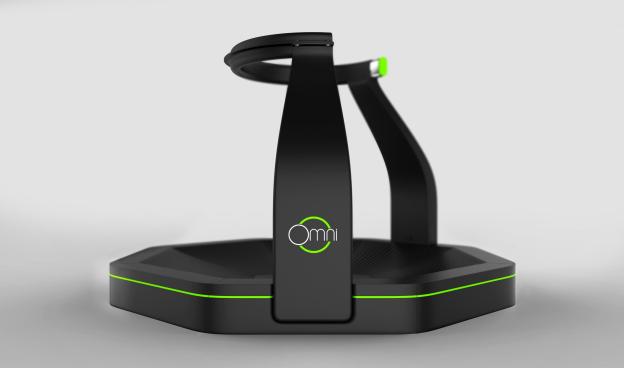
The Omni is a new virtual reality gaming device that launched a funding campaign today on Kickstarter and, in a matter of hours, more than doubled its goal of $150,000. At the time of writing, the funding total is at more than $370,000. There are still 48 days left to go too, and the hope is that units will start shipping in January 2014.
It’s a person-sized platform with a low friction, grooved base that allows users to walk or run in place. That real life movement translates directly into any keyboard-compatible game. Used in tandem with the Oculus Rift and motion controllers like the Razer Hydra, it potentially offers a previously unseen degree of realistic virtual reality gaming. It also boasts health benefits, offering a more active way to game than sitting around holding a mouse or controller. It is also fully adjustable and breaks down like exercise equipment for easy transport or storage.
Contributions of different amounts will get you various hardware and software packages, including the Omni base, the upper stand, and a special belt and pair of shoes. The highest possible donation—$10,000—buys two fully customized Omnis, an office visit, and dinner with the team, plus a seemingly unlimited number of belts and shoes. There is already one backer at this level.
“We are in the midst of a revolution in virtual reality,” the Kickstarter page reads. “Moving naturally in virtual reality creates an unprecedented sense of immersion that cannot be experienced sitting down. That’s why we developed the Omni.”


